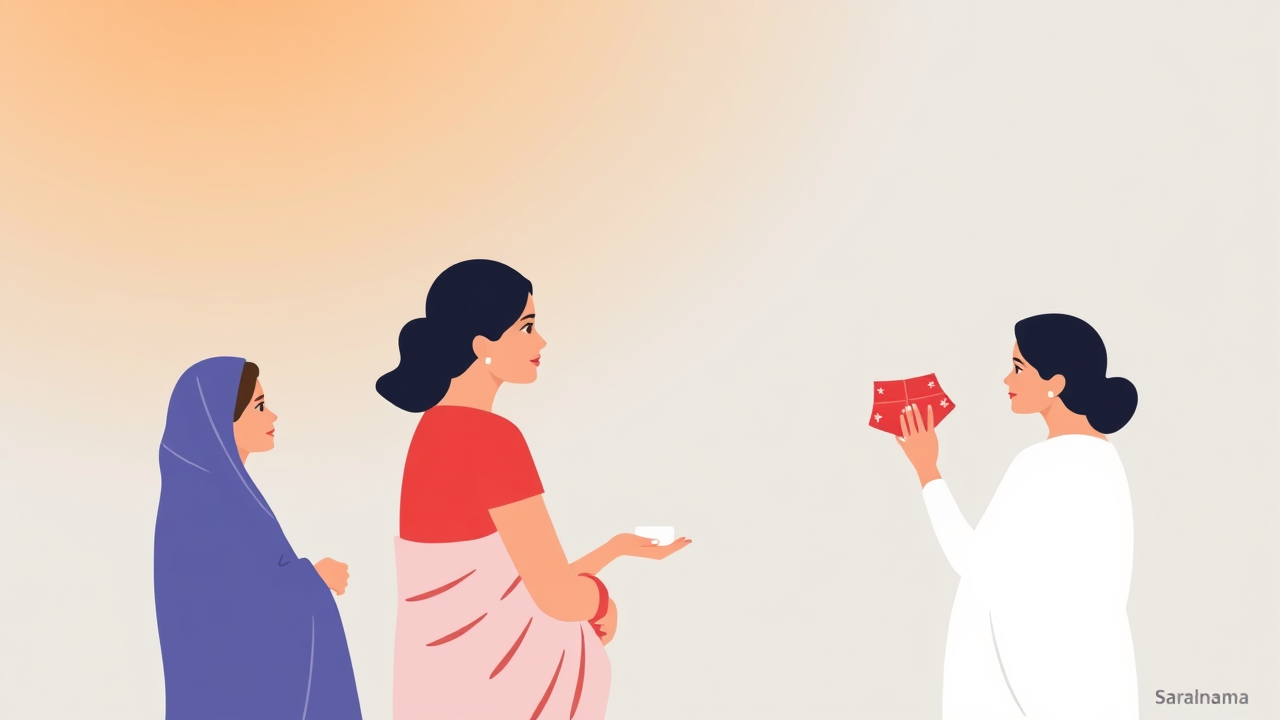In Begusarai district, once called the 'Leningrad of Bihar', Chief Minister Nitish Kumar addressed a rally in the Matihani Assembly constituency as part of his election campaign. The venue in Rachiyahi village drew large crowds, predominantly women from self-help groups known as 'Jeevikas'. Many attendees had benefited from the Mukhya Mantri Mahila Rojgar Yojana, which provides Rs 10,000 to eligible women for income-generating activities. Since launching his campaign on October 16 from Samastipur, Nitish has addressed over two dozen public meetings. The Matihani seat features a three-way contest among Bhumihar candidates: sitting MLA Rajkumar Singh of JD(U), three-time MLA Narendra Kumar Singh (Bogo Singh) of RJD, and Jan Suraaj's Dr Arun Singh. In his 39-minute speech, Nitish emphasized his government's achievements in women's empowerment, education, and job creation, promising one crore jobs over five years. He also highlighted law and order improvements and criticized his long-time rival Lalu Prasad without naming him. While women voters expressed strong support for Nitish, citing tangible development work, younger voters voiced dissatisfaction over unemployment despite his two decades in power.

Women's Support and the Dashazari Yojana Impact
Scores of women traveled to the rally venue in Matihani, many belonging to self-help groups. When asked about the Dashazari Yojana, most confirmed receiving the Rs 10,000 financial aid, while others remained hopeful. Some used the money for Diwali celebrations, buying clothes and crackers for children, or purchasing items for Chhath Puja. Others repaid portions of loans taken from micro-financing companies. At the venue, women occupied nearly two-thirds of the seats under the shamiana as men moved to open ground. Children were lifted on shoulders to glimpse the Chief Minister, with shouts of 'Nitish Kumar zindabad' filling the air. Women voters have become increasingly important in Bihar elections, with turnout exceeding men in 18 constituencies during the 2019 Lok Sabha polls. This demographic remains crucial to Nitish Kumar's political legacy, built on consistent policies targeting women's welfare and empowerment over nearly two decades.
Nitish Kumar's Track Record on Women's Empowerment
Since assuming power in October 2005, Nitish Kumar has systematically cultivated women voters through targeted policies. In 2006, Bihar became the first state to reserve 50% of rural and urban local body seats for women. The same year introduced free bicycles for schoolgirls through the Mukhyamantri Balika Cycle Yojana, providing cash subsidies for female students entering ninth grade. In 2016, he expanded women's reservation to 35% in all state government jobs and imposed prohibition, promoted as a welfare measure for women. Since 2018, the Mukhyamantri Kanya Utthan Yojana has offered financial assistance to girl students through graduation. At the rally, Nitish devoted significant time discussing his government's achievements: appointing 2.58 lakh teachers in the current term and planning to fill over 77,000 teaching vacancies. He promised creating one crore jobs over five years, countering rival Tejashwi Yadav's employment promises and highlighting improvements in law and order.
Local Contest Dynamics and Voter Sentiment
The Matihani constituency features a battle among three Bhumihar candidates. Sitting MLA Rajkumar Singh had won on an LJP ticket in 2020 before joining JD(U), while his opponent Narendra Kumar Singh (Bogo Singh) switched from JD(U) to RJD. Jan Suraaj candidate Dr Arun Singh, former director of Patna's Indira Gandhi Institute of Medical Sciences, adds a surprise element. Begusarai remains competitive territory, with the Opposition winning four seats and NDA three in the last election. Considerable Left influence since the 1950s poses challenges for the ruling coalition. While women expressed unwavering support for Nitish, many youth voiced frustration over unemployment. One young voter criticized the government for police action against BPSC protesters and dismissed the Rs 10,000 scheme as election bribery. Local observers suggest caste dynamics will prove decisive, with Rajkumar potentially holding an edge as most Bhumihars reportedly remain opposed to RJD despite the three-way split.
Source: Link
